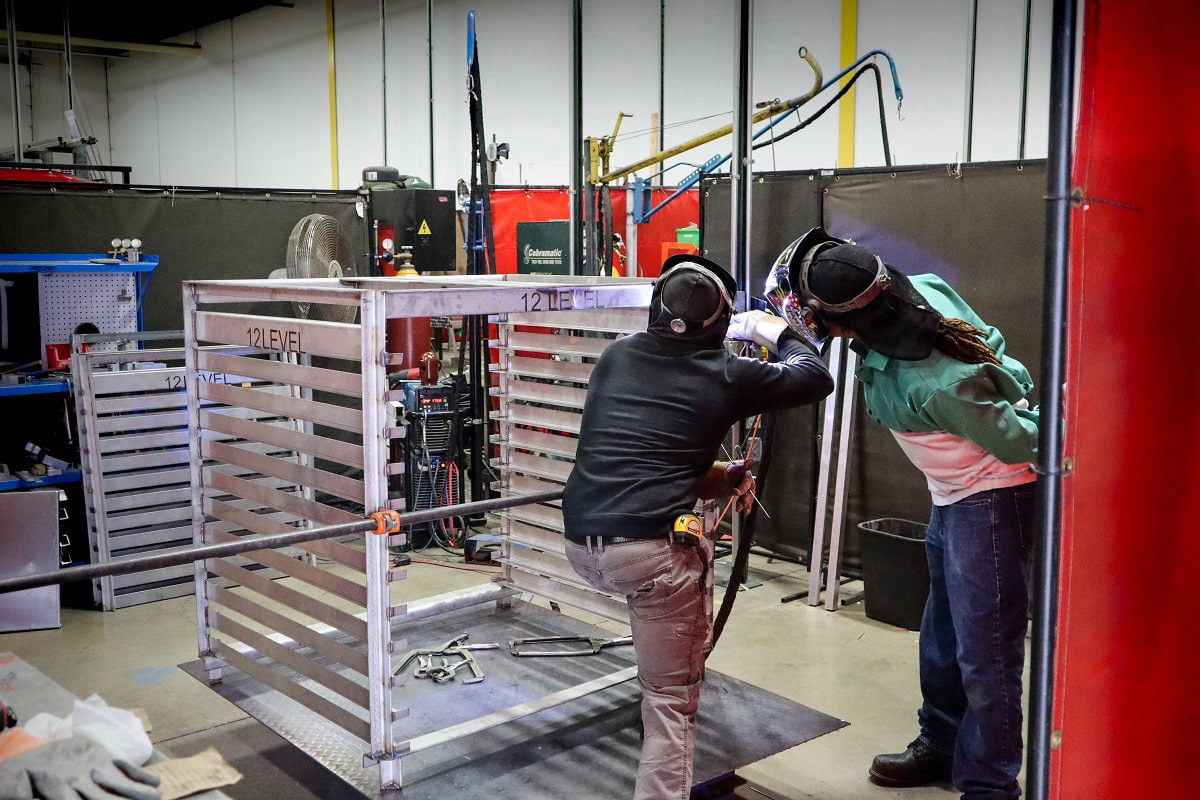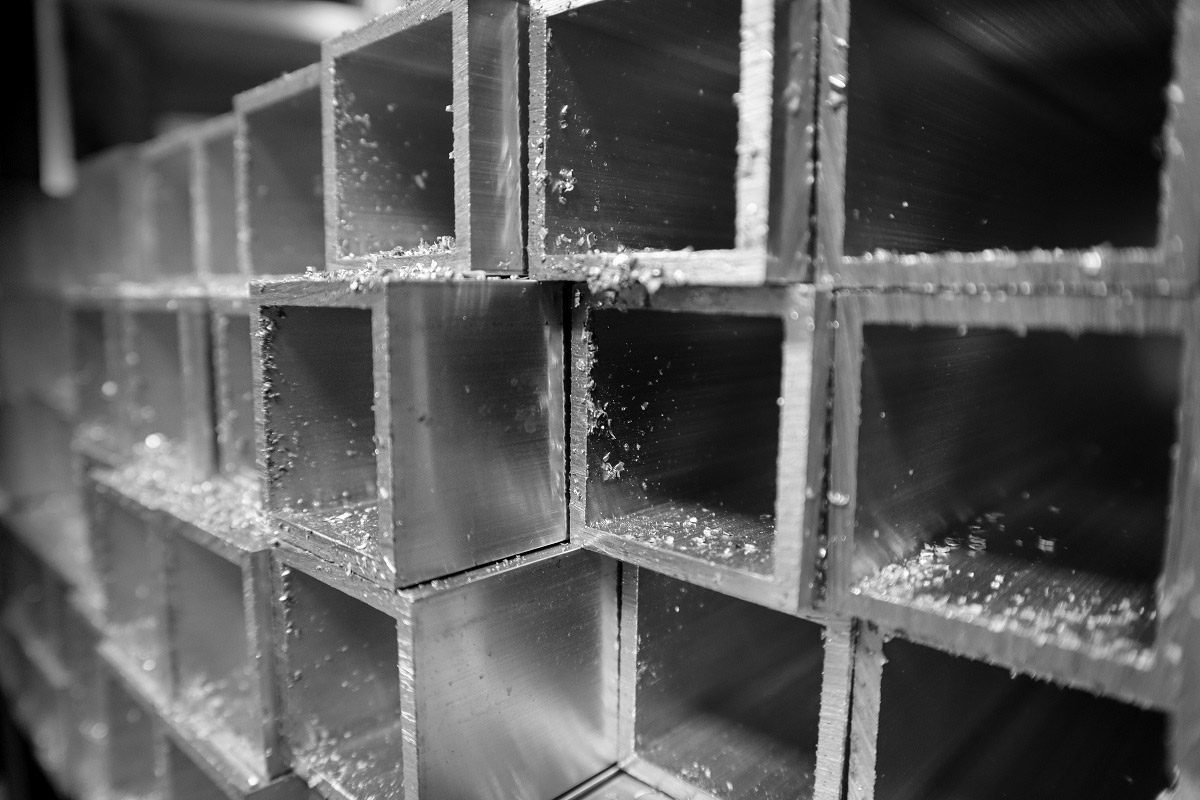
What does metal fabrication mean? Well, by definition, it means “the action or process of manufacturing or inventing something” or “the assembly and fabrication of products.”
So, to summarize, it means to build or create something. For instance, a fabrication could be a factious story. You are combining words to describe something. Or this could be any material creation. But in today’s world, fabrication usually refers to the metal of the steel manufacturing industry. Typically you don’t fabricate a building, you build a building. But here we’re speaking about the way metal is put together to provide a usable product to achieve a result of some desired outcome. And some of the things needed to know about metal fabrication.
What Is Metal Fabrication?
One of the things you should know is that the term “metal fabrication” is very broad. This encompasses the whole scope of creating things out of metal. From heavy structural building and road projects to very precise components that may be used to build a prosthesis for an amputee or other precise medical equipment. From building a fence or gate for your home to a conveyor transporting a food product.
So narrow it down. To have something fabricated from metal, you have to know a little bit about what you want. How do you think it would be constructed? What kind of metal do you think would be used? How large is it? What kind of quantity or how many do you think you may need? Do you have drawings, or has an engineer reviewed your idea? Or do you need design, engineering, and fabrication? How complex is it?
Here are a few of the different types of metal fabrication you will encounter:
- Sheet metal fabrication
- Precision
- HVAC (heating and air conditioning)
- Structural (building components, roads, and bridges)
- Architectural
- Plate
- Ornamental (gates, fences, railings, etc.)
- Welding (often repair, but also small quantity runs or prototypes)
- Assembly
When you think about fabrication, you need to consider that at least several processes will take place. This includes cutting, grinding, bending, drilling,
welding, finishing (painting or other protective or decorative coating), assembly, packaging, and delivery or shipping.
Some of the types of metal that will be before your consideration, to name a few, are:
- Steel
- Structural
- Tool Steel
- Plate
- Stainless Steel
- Aluminum
- Galvanized
Metal Fabrication Project: What to Consider?

Metal Fabricator
Now that you have learned a few things about metal fabrication, you now need to combine the processes and the types of metal into the product you want. And most importantly, finding the company most suited to your project. As with any business transaction and metal fabrication is no different, you need to find a fabricator that fits your need.
As in any business, different fabricators have different capabilities, processes, and equipment. There is no one shop that fits all. That does not say that there are not fabricators that do a wide variety and types of fabrication, but often the fabricator fits a niche or has customers that need a certain type of work done or is set up for a certain type of fabrication. But most importantly, you need a fabricator that has great customer service to help you achieve what you want. A great fabrication shop will also always have great customer service.
Time
Things to be aware of in metal fabrication is the time involved. Most often, if something is fabricated, this means custom or not “off the shelf,” a fabrication takes the processes and puts them together in a most efficient order. This order may include the inclusion of outside vendors or partners that provide a secondary process or one that the fabricator may not have readily at his disposal.
One example is machining. Typically a fabrication shop is not a machine shop or a painting shop. Although some may have these capabilities in a large or small capacity, many do not have the resources, and it is more economical to sub out these secondary operations to a company better suited. Although some fabrications can be created in a shorter period of time, more complex projects can be time-consuming.
Components
Often fabricators will take advantage of off the shelf components. This may mean as simple as fasteners that are needed to assemble the item to other unique components such as glass, wood, or plastic. If the product is high tech, there may even be electrical components or springs that are needed to complete the project or product. Bearings or
caster wheels are other examples of component parts that are incorporated into the fabrication. The advantage of component parts is that they are typically less expensive and take less time to get than if the fabricator were to make the component from scratch.
Equipment and Skills

Advances in technology have made metal fabrication easier and, in many cases, more precise. With CNC equipment availability, at a higher level of quality and preciseness or exactness is easily within reach. From the type of steel we buy today to the use of robotic welding to laser cutting and turret punching technology has definitely made life easier for the fabricator.
However, this does not discount or eliminate the need for skilled labor. There is nothing greater than to see the skilled welder fastening two pieces of metal together or the blacksmith creating a hinge or wagon wheel. The skill needed to heat two pieces of metal to the right temperature to weld together. To cut and shape using a forge, hammer, and anvil. And to bring it up to today, the trained CNC press brake operator manipulating the monitor of his brake and the punch operator choosing the correct tools to make a hole. The experienced engineer considering how the best design to make a strong reliable product and at the same time minimizing costs to stay competitive.
Costs
Although costs do not actually enter into creating a product from one point of view, it must be considered ultimately in view of the project’s success. Cost always enters into the way a product is designed. With the melding of materials and labor, these things are arrived at by a cost. And although technology has made things easier to do, it has come at a price, and it is not unusual in today’s world to spend a quarter of a million dollars or more on a piece of metal fabrication equipment. Today’s materials are vastly more diverse, and exotic materials are within reach of almost every fabricator.
Customer Service and the Fabrication Shop
As we’ve alluded to above, someone in the fabrication business needs to be one who can communicate: both to listen and to talk. Someone who can take the time to understand your needs and work with the other members of his team to find the best possible solution to your need. One who is able to demonstrate value for your money and is responsible for nurturing the relationship by explaining how the process works. To provide value to you.
At Schaumburg Specialties, we have years of experience in working with the industry to understand and provide quality fabrications that work for you. Quality has ever been our value proposition and relationship building is a way of life.
To learn more about our metal fabrication services, the equipment we use, and to get a free estimate for your projects, reach out to us today at 855-929-1066 or by filling out our form.